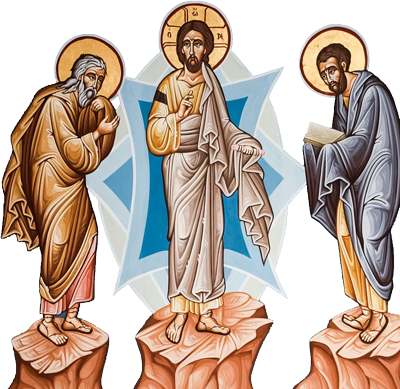Confessions are heard routinely after Vespers on Saturday evenings, but can be scheduled for other times as may be convenient. Contact Fr Michael to arrange another time.
An observant Orthodox life requires regular and frequent Confession. Persons who commune regulary should be confessing regularly, as well. Persons who commune infrequently will need to confess before receiving Communion.
A prayer/meditation by St John of Kronstadt, that many people have found to be a helpful preparation for Confession, can be found here.
There exists a brief set of prayers to be said after Confession, which are provided here.
Fr Michael follows the OCA's Guidelines for Clergy with regard to Confession, which can be found below.
The following directions, from the Guidelines for Clergy (Orthodox Church in America, 1998), address various issues surrounding Confession (the Mystery of Penance) and are considered normative for our practice at HTOC.
Confession, the mystery of reconcilliation with the Church, must be regular and frequent. It must be an abiding element in the lives oif the faithful, deformalized and revitalized as the most common and normal actions of a people continually united and reunited with each other and with God. See: On Spiritual Life in the Church, Encyclical.
- The priest, as spiritual father and confessor of the flock entrusted to his care, must determine the frequency with which the spiritual child confesses his/her sins.
- For those who seldom receive Holy Communion, the priest must keep in all its strictness the obligation for confession before communion. However, if someone wants to confess more often than he/she communes, the Spiritual Father should be prepared to hear that person’s confession at all times.
- For reception of Holy Communion more than once a month, Confession must be on a regular basis, and heard not less than once a month.
- If General Confession is practiced, then the Order of Prayers before Confession must be read. The General Service of Prayers Before Confession is not meant to replace or be a substitute for personal confession.
- The clergy are reminded that they must also avail themselves of the Mystery of Penance regularly and faithfully. The priest who does not have a Spiritual Father upon beginning his priestly ministry must seek one. If he cannot find one, then he must turn to his hierarch to appoint one for him. In some instances, there is a senior priest who has been appointed by the hierarch as diocesan confessor to whom the priest can turn.
- The secrecy of the Mystery of Penance is considered an unquestionable rule in the entire Orthodox Church. Theologically, the need to maintain the secrecy of confession comes from the fact that the priest is only a witness before God. One could not expect a sincere and complete confession if the penitent has doubts regarding the practice of confidentiality. Betrayal of the secrecy of confession will lead to canonical punishment of the priest.
St. Nicodemus the Hagiorite exhorts the Spiritual Father to keep confessions confidential, even under strong constraining influence. The author of the Pedalion (the Rudder), states that a priest who betrays the secrecy of confession is to be deposed. The Metropolitan of Kos, Emanuel, mentions in his handbook (Exomologeteke) for confessors that the secrecy of confession is a principle without exception.
- The testimonial given by the Spiritual Father before an ordination does not constitute an exception. If the confessor discovers an impediment to ordination, he is not obligated to deliver the testimonial, and does not need to provide any reason for justifying his refusal.
See Confidentiality of Confession, Holy Synod of the Orthodox Church in America, 1988. See: Confession and Communion, Report to the Holy Synod of the Orthodox Church in America by Protopresbyter Alexander Schmemann, 1972.

